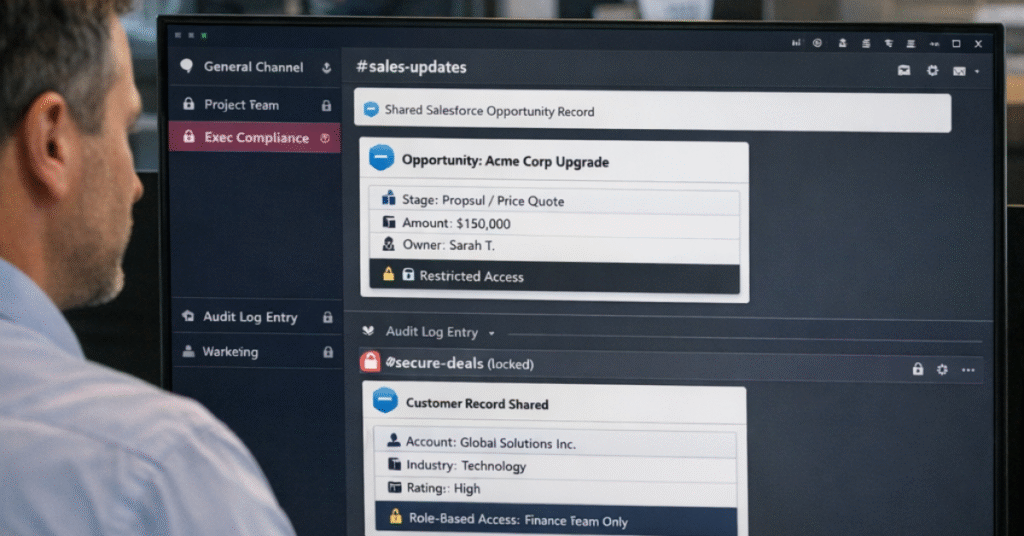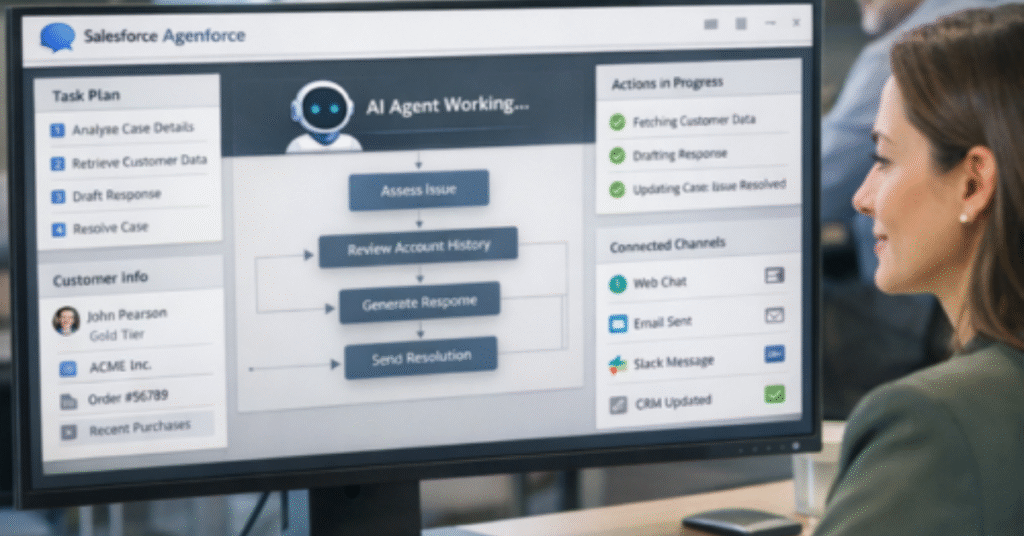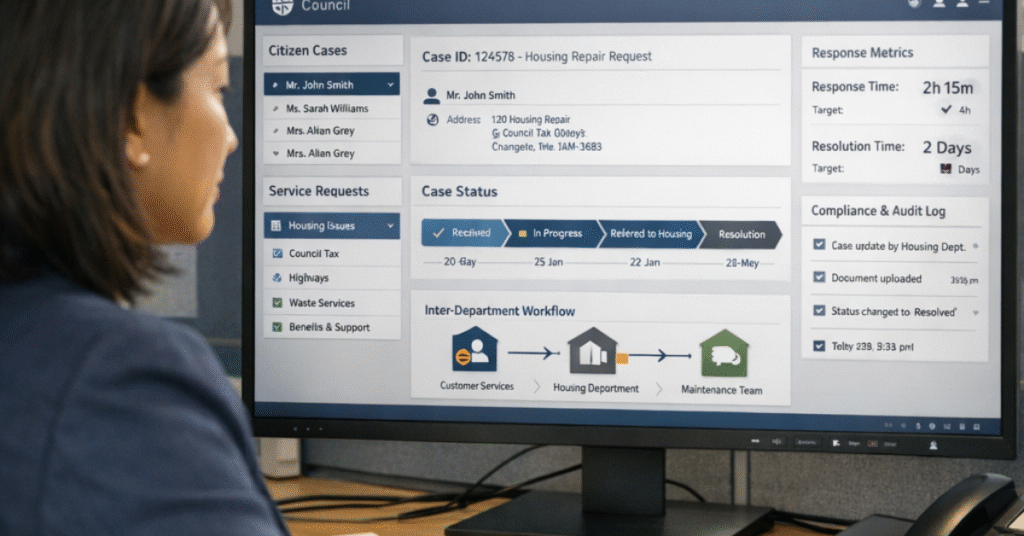
Choosing the right CRM system can transform how small and medium-sized enterprises manage customer relationships, but implementation is where many businesses stumble. A poorly executed rollout wastes money, frustrates teams, and leaves valuable data scattered across systems. For UK SMEs working with tight budgets and lean teams, picking the right CRM implementation services provider makes all the difference.
This guide walks you through 15 providers who understand the unique challenges facing British businesses. Whether you’re a 10-person startup in Manchester or a 200-employee company in Birmingham, you’ll find options that match your sector, budget, and growth plans.
Installing CRM software is one thing. Getting your team to actually use it is another challenge entirely.
Professional implementation services bridge this gap. They handle data migration from spreadsheets and legacy systems, customize workflows to match how your business actually operates, and train staff so adoption rates stay high after launch day. Without this support, most SMEs see their CRM projects stall within six months.
UK businesses face specific considerations too. You need providers who understand GDPR compliance requirements, work within your time zone for real-time support, and ideally have experience with British business practices and industry regulations. Local knowledge counts, especially when integrating with UK-specific tools like Xero, Sage, or HMRC systems.
Before we get to the list, here’s what separates good providers from great ones.
Industry experience matters more than you might think. A provider who has implemented CRMs for manufacturers understands different needs than one who specializes in professional services firms. Ask about their client portfolio in your sector.
Methodology and approach tells you how organized they are. Do they follow structured frameworks? What does their typical timeline look like? How do they handle scope changes? The answers reveal whether you’re dealing with professionals or people making it up as they go.
Post-implementation support often gets overlooked until you need it. Find out what happens after go-live. Is ongoing support included? What response times can you expect? How do they handle software updates and new feature rollouts?
Sailwayz focuses on practical technology solutions that businesses actually use rather than systems that gather digital dust. They work with UK SMEs who need straightforward salesforce CRM implementations without unnecessary complexity or inflated costs.
What sets them apart is their emphasis on long-term usability over flashy features. They ask tough questions about your processes, challenge assumptions, and help businesses think through decisions that affect daily operations. Their approach centers on getting teams to adopt systems enthusiastically rather than just checking boxes on implementation checklists.
Sailwayz understands that UK SMEs face unique pressures around budget constraints, limited IT resources, and the need for quick wins. Their implementations reflect these realities with phased rollouts, hands-on training, and ongoing support that doesn’t disappear after go-live.
Multiple Salesforce consulting partners across the UK specialize in SME implementations. These certified partners bring deep platform knowledge and can scale solutions from basic Sales Cloud setups to complex multi-cloud deployments. Most offer fixed-price packages specifically designed for smaller businesses.
The Salesforce ecosystem includes hundreds of UK-based partners, so you can find local expertise in virtually any region. Look for partners with SME-specific credentials and case studies from businesses similar to yours.
For businesses already using Microsoft 365, Dynamics 365 offers natural integration advantages. UK implementation partners help SMEs leverage existing Microsoft investments while adding powerful CRM capabilities.
These specialists typically understand the Microsoft ecosystem deeply, making it easier to connect your CRM with Outlook, Teams, SharePoint, and Power BI. This matters when your team already lives in Microsoft tools daily.
HubSpot has gained serious traction among UK SMEs who want marketing automation alongside CRM functionality. Implementation agencies help businesses set up the platform properly, avoiding the common mistake of treating HubSpot as just another contact database.
These providers typically focus on inbound marketing methodologies, making them particularly useful for businesses building digital marketing capabilities alongside sales processes.
Zoho CRM appeals to cost-conscious SMEs who still need robust functionality. UK partners help businesses navigate Zoho’s extensive app ecosystem and customize the platform without requiring expensive developers.
The pricing structure makes Zoho attractive for businesses with 5-50 employees, and implementation partners can often deliver working systems faster than enterprise platform specialists.
Pipedrive’s visual pipeline approach resonates with sales-focused SMEs who want simplicity over complexity. Implementation consultants help businesses structure their sales processes, import existing data cleanly, and train teams on best practices.
This option works particularly well for companies where sales pipeline management is the primary use case rather than marketing automation or customer service ticketing.
Monday.com has evolved from project management into CRM territory, attracting UK SMEs who value flexibility and visual interfaces. Specialists help businesses configure the platform’s building blocks into functional CRM systems.
This approach suits companies that need customization but lack technical resources for traditional CRM platforms. The visual workflow builders make ongoing adjustments easier for non-technical staff.
For UK SMEs already using Sage accounting software, Sage CRM offers tight financial integration. Implementation partners help businesses connect customer relationship data directly with invoicing, credit control, and financial reporting.
This option makes particular sense for manufacturing, wholesale, and distribution businesses where customer account management ties closely to financial operations.
Smaller regional consultancies across England, Scotland, Wales, and Northern Ireland often deliver more personalized service than national firms. These providers typically work with 3-30 employee businesses and pride themselves on face-to-face relationships.
Regional providers often respond faster and cost less than London-based agencies while delivering comparable quality. They bring local market knowledge and can meet on-site more easily than providers based hundreds of miles away.
Some UK providers specialize in specific sectors like property, recruitment, or professional services. They bring pre-configured templates, industry terminology, and compliance knowledge that generic providers can’t match.
If your industry has unique workflows or regulatory requirements, this specialization can cut implementation time significantly and reduce the risk of missing sector-specific features.
Freshworks (formerly Freshsales) has carved out space in the UK market with competitive pricing and solid functionality. Partners help SMEs implement the platform alongside other Freshworks products like customer support and marketing automation.
This option appeals to businesses wanting a unified suite from one vendor rather than integrating multiple point solutions.
Copper (formerly ProsperWorks) targets Google Workspace users with deep Gmail and Google Calendar integration. Implementation specialists help businesses leverage these connections to minimize data entry and keep CRM data synchronized automatically.
For businesses already committed to Google’s ecosystem, this represents one of the smoothest implementation paths available.
Nimble focuses on social media integration and relationship intelligence. UK consultants help SMEs set up systems that automatically gather contact information from social profiles and track interactions across multiple channels.
This works well for businesses where social selling plays a significant role in customer acquisition and relationship development.
Insightly combines project management with CRM, making it popular among professional services firms, agencies, and consultancies. Implementation experts help businesses connect client relationships with project delivery and profitability tracking.
The approach suits businesses where customer relationships extend beyond sales into ongoing project work and service delivery.
Capsule targets smaller UK businesses with straightforward needs and limited budgets. Specialists help companies implement clean, simple systems without overwhelming features that never get used.
This option makes sense for businesses with 5-20 employees who need reliable contact management and basic sales tracking rather than enterprise-grade complexity.
Also read: – Salesforce crm features and benefits
Start by defining what success looks like for your business. Do you need better sales forecasting? Cleaner customer data? Automated marketing campaigns? Your definition of success should guide which provider you choose.
Talk to at least three providers before deciding. Ask them to explain how they’ve solved similar challenges for other UK SMEs. Listen carefully to how they describe their process and what questions they ask about your business.
Check references from businesses similar to yours. Don’t just ask whether the project went well. Ask about response times during problems, how the provider handled unexpected challenges, and whether they stayed within budget.
Consider the total cost beyond implementation. Factor in ongoing support, training for new staff, and potential customization needs as your business grows. The cheapest implementation often becomes expensive when hidden costs emerge later.
Skipping the discovery phase ranks among the most costly mistakes. Providers need time to understand your current processes, data quality issues, and team dynamics before configuring anything. Rushing this step leads to systems that don’t match how your business actually works.
Underestimating data migration complexity catches many SMEs off guard. Customer data rarely lives in one clean spreadsheet. It’s scattered across emails, multiple spreadsheets, old systems, and individual notebooks. Plan for this complexity upfront.
Neglecting change management dooms many implementations. Your team needs more than a two-hour training session. They need ongoing support, clear documentation, and leadership commitment to actually using the new system daily.
Trying to replicate old processes exactly in new software misses the point. Good CRM implementation includes process improvement, not just digitizing existing inefficiencies. Be open to changing how things get done.
How many UK SMEs have you worked with in our industry? Specific numbers and examples matter more than vague claims about experience.
What does your typical implementation timeline look like for a business our size? This reveals whether they understand SME constraints around staff availability and budget.
How do you handle data migration and what’s your typical data quality improvement process? This shows whether they’ve dealt with messy real-world data before.
What training do you provide and how do you measure user adoption? This indicates whether they care about outcomes or just getting systems live.
What happens when we need changes or hit problems after go-live? Understanding ongoing support structures prevents nasty surprises later.
Can you provide three references from businesses similar to ours? Actually call these references. Most people don’t, giving you a real information advantage.
Success depends more on people than technology. The best CRM system in the world fails if your team doesn’t use it consistently.
Involve users early in the selection and implementation process. When people have input on how things work, they’re more likely to adopt the system enthusiastically. This participation also surfaces practical insights that managers might miss.
Start with core functionality and expand gradually. Trying to implement everything at once overwhelms teams and guarantees low adoption rates. Get the basics working smoothly first, then add complexity over time.
Celebrate quick wins loudly. When someone closes a deal because the CRM reminded them to follow up, share that story. When customer service solves a problem faster because they had full account history, recognize it publicly. These stories build momentum.
Also Read: – Sap crm vs salesforce
Getting CRM implementation right transforms how UK SMEs compete. You gain visibility into your sales pipeline, respond faster to customer needs, and make decisions based on data rather than gut feeling.
The providers listed here represent different approaches to solving the same fundamental challenge: helping businesses manage customer relationships more effectively. Your job is matching the right provider to your specific situation, budget, and growth trajectory.
Take time to define what you actually need before getting dazzled by impressive features. A simpler system that your team uses beats a sophisticated platform that sits idle. Businesses that focus on practical implementation over theoretical capabilities achieve better outcomes faster.
Start conversations with a few providers this week. Ask good questions. Check references thoroughly. Then choose the partner who understands your business rather than just selling software. Your future self will thank you for taking implementation seriously from the start.
How long does typical CRM implementation take for a UK SME?
Most SME implementations run between 6-12 weeks from kickoff to go-live. This includes discovery, data migration, configuration, testing, and training. Simpler systems like Pipedrive might launch in 4-6 weeks, while complex Salesforce or Dynamics implementations sometimes extend to 16 weeks. Rushing this timeline usually creates problems that cost more to fix than the time you saved initially.
What does CRM implementation typically cost for small businesses in the UK?
Implementation costs vary widely based on business size, complexity, and platform choice. Basic implementations for 5-10 users might cost £3,000-£8,000. Mid-sized projects for 20-50 users typically run £10,000-£25,000. These figures exclude ongoing software licensing fees. Get detailed written quotes that specify exactly what’s included to avoid surprise costs later.
Do I need technical staff to manage CRM after implementation?
Not usually. Modern CRMs are designed for business users rather than IT departments. Good implementation includes training your team to handle routine tasks like adding fields, creating reports, and managing users. You might need technical help for complex integrations or major customizations, but day-to-day management shouldn’t require developers or IT specialists.
How do I get my team to actually use the new CRM system?
Make it easier to use the CRM than not use it. Integrate it with tools they already use daily like email and calendars. Keep required fields minimal at launch. Show them specific ways the CRM makes their jobs easier rather than just creating more data entry. Leadership must use the system consistently too since teams follow what managers do, not what they say.
Should UK SMEs choose cloud-based or on-premise CRM systems?
Cloud-based CRMs make more sense for most UK SMEs today. They require less upfront investment, include automatic updates, enable remote access, and eliminate server maintenance headaches. On-premise systems only make sense for businesses with specific data sovereignty requirements, existing IT infrastructure investments, or regulatory constraints that prevent cloud usage. The vast majority of modern implementations use cloud platforms.











Joshua Eze is the Founder & Salesforce Architect at Sailwayz, a certified Salesforce Consulting Partner based in the UK. With over 6 years of experience leading CRM transformations, he is a certified Application & System Architect passionate about using technology to simplify business processes. Joshua helps companies unlock the full potential of Salesforce with strategic, scalable, and secure solutions.